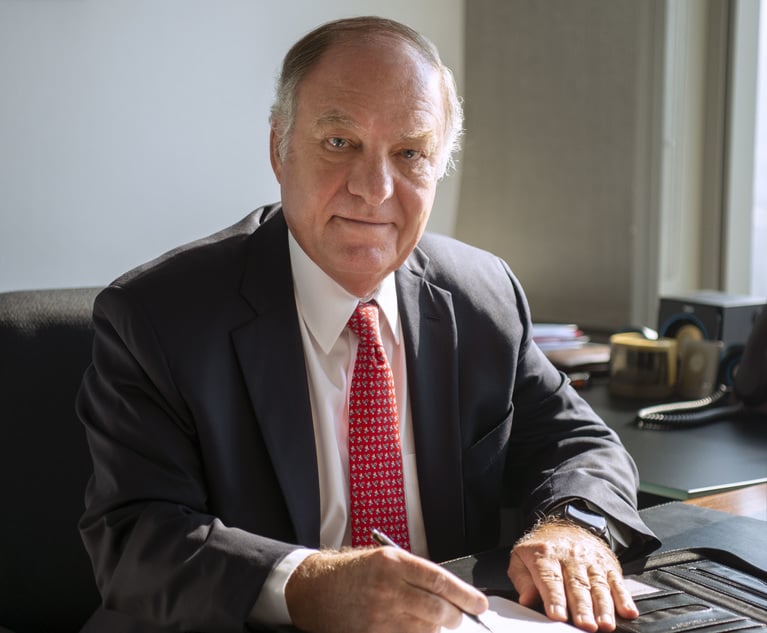Deloitte research shows UK top 10 drop in fee income for Q1 2014-15
Shrinking fee earner numbers and a decline in pound sterling rates has caused a year on year drop in fee income at the UK's top 10 firms for Q1 2014-15, according to Deloitte's legal sector survey.
September 18, 2014 at 07:03 PM
2 minute read
Shrinking fee earner numbers and a decline in pound sterling rates has caused a year on year drop in fee income at the UK's top 10 firms for Q1 2014-15, according to Deloitte's legal sector survey.
The auditor's research shows a mixed performance across the 100 firms in the three months leading to 31 July. Average fee income among the top 10 dipped by 2.7%, contrasting with an increase of 6.2% for firms ranked 11 to 25 and growth of 5.3% for those between 26 to 50. The remaining 50 recorded an increase of 11.2%.
The auditor attributed the decrease within the largest firms to a 2.1% fall in fee earner headcount as well as the strong pound, which has in turn weakened revenue coming in from overseas offices.
On the other hand the uptick for firms in the 11-25 bracket was buoyed by increases in chargeable hours per fee earner of 3.5% on top of improvements in rates. Fee earner numbers stayed broadly static.
The auditor said average growth in fee income across the UK's 100 top firms has grown year on year by 6.1% for the last quarter, which is largely down to a spate of merger activity and lateral hires in the last 12 months. Firms ranked 26 to 50 grew headcount by 5%.
The top 10 has predicted year-on-year Q1 growth in fee income of just over 2%, while firms ranked 11-25 forecast an uptick of just over 5%. Those between 26 to 50 have estimated an increase of 7%.
"Confidence is definitely building but fairly slowly," said Deloitte professional practices partner Jeremy Black (pictured). For the top ten, I think the market is still challenging as there is still a lot of uncertainty in the global economy. Things are moving in a positive direction in key geographies but it is still hard to gain growth in the market.
"I think those in the 11 to 25 category put in a stronger performance because on average the group has more firms with a London focus. Meanwhile I expect more consolidation will occur in the lower half of the 100, particularly for those specialising in volume work, as a large number of firms are based outside London and continue to find the market very difficult."
This content has been archived. It is available through our partners, LexisNexis® and Bloomberg Law.
To view this content, please continue to their sites.
Not a Lexis Subscriber?
Subscribe Now
Not a Bloomberg Law Subscriber?
Subscribe Now
NOT FOR REPRINT
© 2025 ALM Global, LLC, All Rights Reserved. Request academic re-use from www.copyright.com. All other uses, submit a request to [email protected]. For more information visit Asset & Logo Licensing.
You Might Like
View All
Carey Abogados’ Senior Partner Becomes New Head of IBA, First Chilean to Assume Role of President

Goodwin Hires Quinn Emanuel Antitrust Partner to Launch Brussels Office
3 minute read
Claus von Wobeser: Mexico's ‘Godfather of Arbitration’ Becomes Firm’s Honorary Chair

Jenner & Block Expands London Team with Baker McKenzie Hire to Lead New Practice Area
2 minute readTrending Stories
- 1Court Rejects San Francisco's Challenge to Robotaxi Licenses
- 2'Be Prepared and Practice': Paul Hastings' Michelle Reed Breaks Down Firm's First SEC Cybersecurity Incident Disclosure Report
- 3Lina Khan Gives Up the Gavel After Contentious 4 Years as FTC Chair
- 4Allstate Is Using Cell Phone Data to Raise Prices, Attorney General Claims
- 5Epiq Announces AI Discovery Assistant, Initially Developed by Laer AI, With Help From Sullivan & Cromwell
Who Got The Work
J. Brugh Lower of Gibbons has entered an appearance for industrial equipment supplier Devco Corporation in a pending trademark infringement lawsuit. The suit, accusing the defendant of selling knock-off Graco products, was filed Dec. 18 in New Jersey District Court by Rivkin Radler on behalf of Graco Inc. and Graco Minnesota. The case, assigned to U.S. District Judge Zahid N. Quraishi, is 3:24-cv-11294, Graco Inc. et al v. Devco Corporation.
Who Got The Work
Rebecca Maller-Stein and Kent A. Yalowitz of Arnold & Porter Kaye Scholer have entered their appearances for Hanaco Venture Capital and its executives, Lior Prosor and David Frankel, in a pending securities lawsuit. The action, filed on Dec. 24 in New York Southern District Court by Zell, Aron & Co. on behalf of Goldeneye Advisors, accuses the defendants of negligently and fraudulently managing the plaintiff's $1 million investment. The case, assigned to U.S. District Judge Vernon S. Broderick, is 1:24-cv-09918, Goldeneye Advisors, LLC v. Hanaco Venture Capital, Ltd. et al.
Who Got The Work
Attorneys from A&O Shearman has stepped in as defense counsel for Toronto-Dominion Bank and other defendants in a pending securities class action. The suit, filed Dec. 11 in New York Southern District Court by Bleichmar Fonti & Auld, accuses the defendants of concealing the bank's 'pervasive' deficiencies in regards to its compliance with the Bank Secrecy Act and the quality of its anti-money laundering controls. The case, assigned to U.S. District Judge Arun Subramanian, is 1:24-cv-09445, Gonzalez v. The Toronto-Dominion Bank et al.
Who Got The Work
Crown Castle International, a Pennsylvania company providing shared communications infrastructure, has turned to Luke D. Wolf of Gordon Rees Scully Mansukhani to fend off a pending breach-of-contract lawsuit. The court action, filed Nov. 25 in Michigan Eastern District Court by Hooper Hathaway PC on behalf of The Town Residences LLC, accuses Crown Castle of failing to transfer approximately $30,000 in utility payments from T-Mobile in breach of a roof-top lease and assignment agreement. The case, assigned to U.S. District Judge Susan K. Declercq, is 2:24-cv-13131, The Town Residences LLC v. T-Mobile US, Inc. et al.
Who Got The Work
Wilfred P. Coronato and Daniel M. Schwartz of McCarter & English have stepped in as defense counsel to Electrolux Home Products Inc. in a pending product liability lawsuit. The court action, filed Nov. 26 in New York Eastern District Court by Poulos Lopiccolo PC and Nagel Rice LLP on behalf of David Stern, alleges that the defendant's refrigerators’ drawers and shelving repeatedly break and fall apart within months after purchase. The case, assigned to U.S. District Judge Joan M. Azrack, is 2:24-cv-08204, Stern v. Electrolux Home Products, Inc.
Featured Firms
Law Offices of Gary Martin Hays & Associates, P.C.
(470) 294-1674
Law Offices of Mark E. Salomone
(857) 444-6468
Smith & Hassler
(713) 739-1250








